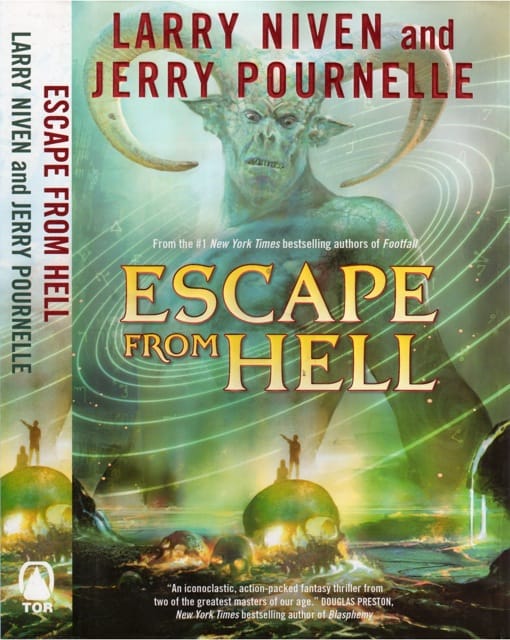The Long View 2008-04-11: The Maliki Counter-Offensive

Carl von Clausewitz
Public Domain, https://commons.wikimedia.org/w/index.php?curid=1242578
This is a great reflection on war and violence by John J. Reilly:
The organized use of violence is everywhere culture-specific. This is the great limitation to the precision-instrument military that Donald Rumsfeld (and his predecessors for 20 years) had been trying to create before the distraction of Iraq. Victories produced by these means are not everywhere seen as victories. Some societies see them as little more than sophisticated fireworks displays that are lethal to unwary bystanders.
Americans prefer short, sharp, metal-on-metal wars, in which the element of politics is as small as the shade of Clausewitz will allow. Americans find the outcomes produced by this kind of conflict cognitively satisfying, even when they don't like the result. The societies of the Persian Gulf, we may surmise, don't do wars like this. It's not because they can't, but that the outcomes they produce don't answer the questions the societies ask.
The kind of war you prefer isn’t always the kind of war you get.
The Maliki Counter-Offensive
If we are to believe Patrick Buchanan, we should not be surprised if President Bush appears before the TV cameras one day soon to declare:
"My commanding general in Iraq, David Petraeus, has told me that Iran, with the knowledge of President Ahmadinejad, has become a privileged sanctuary for two terrorist organizations -- Hezbollah and the Quds Force of the Iranian Revolutionary Guard -- to train, arm and direct terrorist attacks on U.S. and coalition forces, despite repeated promises to halt this murderous practice.
"I have therefore directed U.S. air and naval forces to begin air strikes on these base camps of terror. Our attacks will continue until the Iranian attacks cease."
Buchanan would deplore this announcement. He berates the current Democratic majority in Congress for failure to pass measures to make such an attack impossible without explicit Congressional authorization. Neither is he the first person to have thoughts along these lines. In contrast, we might consider the analysis of Amir Tahiri, which suggests that an American attack would be superfluous:
Iran's Islamic Revolutionary Guard Corps (IRGC) tried to seize control of Iraq's second-largest city using local Shiite militias as a Trojan horse...The expected call from the Najaf ayatollahs to stop "Shiite fratricide" failed to materialize. Grand Ayatollah Ali-Muhammad Sistani, the top cleric in Iraq, gave his blessings to the Maliki-launched operation. More broadly, the Shiite uprisings in Baghdad, Karbala, Najaf and other cities that Quds commanders had counted upon didn't happen. The "Green Zone" wasn't evacuated in panic under a barrage of rockets and missiles. ...Some analysts suggest this was the first war between new Iraq and the Islamic Republic. If so, the Iraqis won.
The important point about the attack by the Maliki government against Muqtada al-Sadr's militia was not that the offensive failed to disburse the militia. Probably, we may surmise, the attack was not seriously expected to do that. What it was intended to do was convince the responsible political actors in Iraq (the Arab Sunnis, the Kurds, and the Shia establishment) that Maliki was not just a Shia Kerensky keeping the chair warm for an Iranian puppet.
This is the view that Mickey Kaus takes in his deconstruction of the New York Times coverage of the offensive and its aftermath. It is the measure of the Times that the information it provided actually supports Tahiri's assessment, but the Times structured the information to support a narrative about "rising violence" in which the intentions and strategies of the actors had no explanatory role.
The Maliki counter-offensive, undertaken at short notice and with minimal preparation, was a ragged affair from an American perspective. It was preceded by rhetoric that would make any outcome but total victory a failure; again, from the American perspective, but that was not the perspective that counts. What seems to have happened is that an Iranian-backed offensive was decisively defeated, occasioning a novel degree of political unity against the Iranian proxy. The Sadr people are now in the awkward position of having to choose between disbanding militarily or being denied the opportunity to participate in the upcoming elections.
The organized use of violence is everywhere culture-specific. This is the great limitation to the precision-instrument military that Donald Rumsfeld (and his predecessors for 20 years) had been trying to create before the distraction of Iraq. Victories produced by these means are not everywhere seen as victories. Some societies see them as little more than sophisticated fireworks displays that are lethal to unwary bystanders.
Americans prefer short, sharp, metal-on-metal wars, in which the element of politics is as small as the shade of Clausewitz will allow. Americans find the outcomes produced by this kind of conflict cognitively satisfying, even when they don't like the result. The societies of the Persian Gulf, we may surmise, don't do wars like this. It's not because they can't, but that the outcomes they produce don't answer the questions the societies ask.
Copyright © 2008 by John J. Reilly



Comments ()